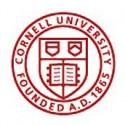 Black Students United, a campus organization at Cornell University, has launched a new program aimed at boosting the graduation rates of African-American men. Students Working Ambitiously to Graduate (SWAG) pairs African-American male freshmen with upperclass mentors and tutors.
Black Students United, a campus organization at Cornell University, has launched a new program aimed at boosting the graduation rates of African-American men. Students Working Ambitiously to Graduate (SWAG) pairs African-American male freshmen with upperclass mentors and tutors.
The black male student graduation rate at Cornell is 75 percent. This is 16 percentage points lower than the graduation rate for white males and 17 percentage points lower than the graduation rate for black women at Cornell.
SWAG is an independent student-run group supported by a grant from Pepsi. Joshua Mbanusi, a senior and founder of SWAG, told the Cornell Daily Sun, “I don’t believe students should necessarily be at the forefront of an initiative to make sure we graduate. Why hasn’t the institution done more hands-on things to combat this?”

